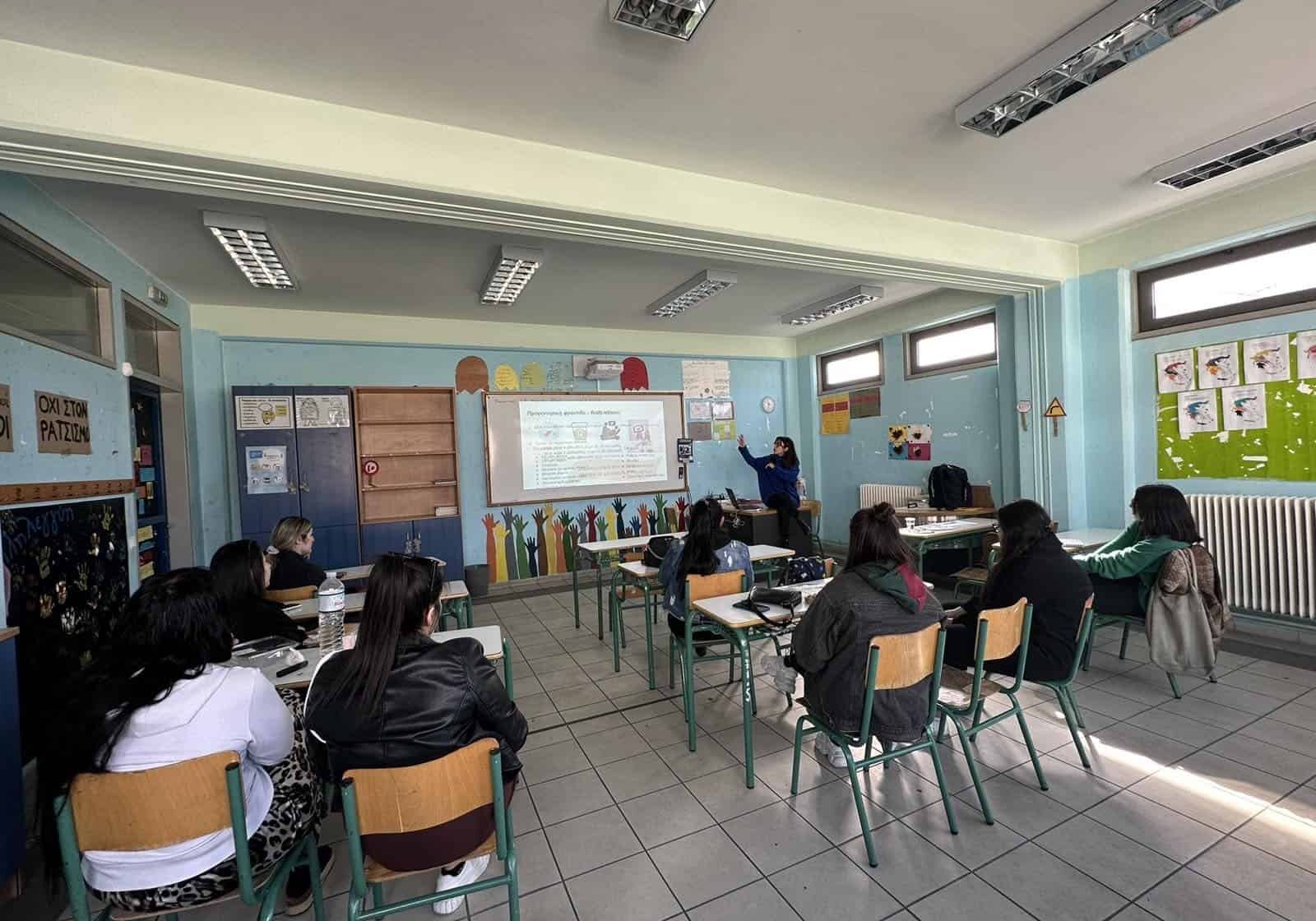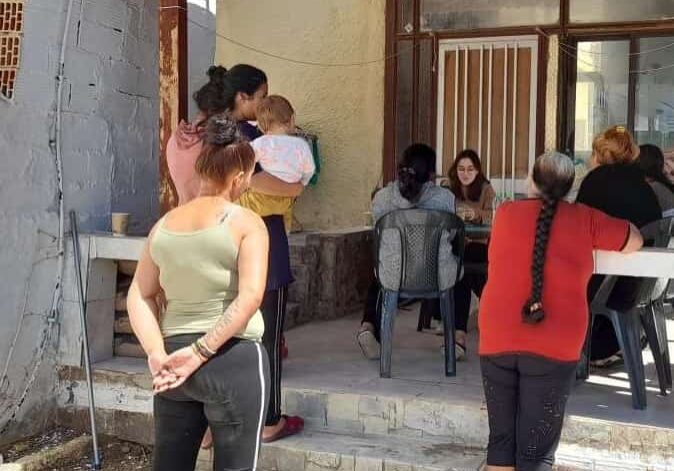Creating an inclusive society requires the maintenance and promotion of health - a decisive factor when it comes to social inclusion. This carries an even bigger significance for underserved communities and the challenges they face when accessing health systems. One of the most vulnerable population groups in the European region is the Roma community - in particular Roma women.
However, breaking down barriers to healthcare and services is possible. By working with and respecting specific cultural values, it not only builds trust but also ensures that societal needs are met. Efforts such as this will help to reduce inequalities, fight racism and biases. The Prolepsis Institute in Greece is working to empower young Roma through health promotion, disease prevention, and protection of human rights.
According to the European Commission, Roma people form the largest ethnic-minority group in Europe, undoubtedly constituting one of the most vulnerable population groups in the European region. According to Amnesty International in central and Eastern Europe, life expectancy among the Roma people is 10 years shorter compared to the general population.
Previous research has shown that Roma people are increasingly affected by communicable as well as chronic diseases. They are found to have a higher prevalence of health-harming behaviours, such as smoking and unhealthy dietary choices, which contribute to the development of chronic diseases.
Barriers in accessing healthcare further exacerbate the problem. Despite having the same rights to access the same health services as the rest of the Greek population (provided they have the necessary documentation), Roma women face the greatest health system barriers, most notably facing problems regarding pregnancy and maternal complications, chronic conditions and mental health issues.
Empowering communities
In addition, Roma society is strongly patriarchal. This can create significant problems for Roma women who already face stigmatisation and discrimination. Culturally, Roma women typically marry very early (traditional, unofficial child marriages under the age of 15 years old are frequently forced), have many pregnancies, and give birth to many children. In addition, they have the responsibility to uphold and maintain a house and/or shack. Basic facilities such as electricity and running water - amenities which are commonly accessible for most of the Greek population - may not be accessible to many from this community.
In January 2022 the Prolepsis Institute - a civil law non-profit organisation in Greece - decided to take an important step towards eliminating such inequalities through the initative, “Empowering Young Roma Women in matters of health, prevention and human rights: a new methodological approach.” The aim of this intervention is to empower Roma women, as well as organisations working with Roma populations to address common attitudes and habits that can have a negative impact on Roma people’s health, and to implement health promotion and human rights activities.
The initative opened with a literature review that further highlighted the need for such an intervention. A series of both qualitative and quantitative studies to better explore the needs and the distinctive characteristics of Roma women, in terms of health and prevention (personal and dietary habits, prevention of gynaecological diseases and vaccinations), human rights, domestic violence, mental health, and social exclusion followed.



Working with communities
Focussing on 5 different intervention areas in Greece, it involves the crucial contribution of cultural mediators, the team had the chance to meet, listen and connect with Roma women and girls who shared their perceptions and the obstacles they face regarding their education in health, prevention and human rights.
The Prolepsis Institute maintained that involving the Roma community as much as possible in every step of this iniative is vital for successful implementation. It became clear early on that older women as well as cultural mediators have a distinctive role in the Roma community and can act as beacons for younger members inspiring them towards change.
"My mother told me to get the HPV vaccine because a nurse had informed her. I didn’t want to do it, but because my mother told me to, I got the vaccine.” (24-year-old women from Chalkida city).
Across the areas visited, it appeared that the majority of Roma women visit a gynaecologist for reasons related to pregnancy, but preventative gynaecological healthcare was lacking due to limited information from the health sector. For instance, there was only a small percentage of women who had had a Pap smear and who were vaccinated against HPV.
The power of communication
As the decisions people make regarding their health are a result of the information they receive, it is crucial that health interventions are driven through culturally appropriate communicative campaigns. By doing so, health professionals and other key stakeholders have the opportunity to work with communities, to understand the needs and principles of that particular group, and to ensure they receive the information needed to make informed decisions.
For instance, it soon became apparent how vital communication is regarding immunisation and the Roma community. Many Roma women were for the most part unaware of the importance of adult vaccinations due to a lack of information given to them and subsequently were more cautious to vaccinating their children.
The COVID-19 pandemic also left its mark. Misinformation surrounding the vaccine led to further distrust of immunisation. However, by working with the Roma women and having open conversations, connections have been made and consequently trust in public health workers has been improved. In time, this all leads to a better healthcare experience for the community and in turn improves health outcomes.


Creating a solid foundation to promote good health and wellbeing is done by forging relationships, implementing clear outreach channels and having a strong cultural appreciation for underserved populations. In the Roma communities that were part of the project, for example, there is a high tendency of smoking among young girls as well as a wider social tolerance and acceptance of it. But through understanding the needs of this community, health professionals can provide information to highlight and inform the negative health impacts of smoking.
It is a similar story with nutrition. Presenting and demonstrating healthier ways of cooking, alternative methods to preserve food (as some houses do not have a refrigerator and an electric stove due to a lack of electricity) as well advising about the health implications of eating processed food and drinks can lead to a greater understanding of the health implications and have a positive effect on health outcomes.
Transferring knowledge
Overall, the topics covered during the educational sessions conducted were considered particularly interesting by the participants who stressed the importance of creating an intervention that takes place within the respective Roma communities, that avoids medical jargon and that uses audio visual material.
Each visit provided a unique opportunity to build the appropriate educational tools and methodologies to approach young Roma women in matters of health and human rights. The educational material developed by the scientific team of Prolepsis Institute for health and prevention included four units (prevention of gynaecological issues, vaccinations, smoking and nutrition). Each unit consisted of a theoretical background to develop the material, a presentation for future trainers, a presentation for trainees, a brochure, and a poster.
By the end of April 2023, the project successfully completed the training of future trainers consisting of young Roma (≤25 years old) and non-Roma women, who will now transfer the knowledge acquired to their communities with the Institute’s continuous support. The training took place in the intervention areas after field research had taken place.
What's next?
The next step of this journey will pilot the implementation of informative sessions on health issues by the trainers with the aim of transferring this health-related knowledge to young Roma women – a step very much anticipated.
We strongly believe that maintaining and promoting health is a decisive factor of social inclusion and progress for every young woman, especially for young Roma women. Every effort in this direction reduces inequalities and fights racism.




